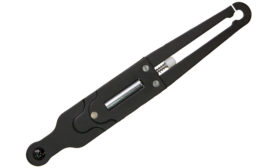Refrigeration
Offers a quicker pull-down time compared to other refrigerants
Read More
Industry Recommits to Reducing HFCs at White House Event
HVACR industry spent more than $255 million in 2015 to research, develop low-GWP refrigerants
Read More
AHRI Reinforces Refrigerant R&D Commitment at White House Event
Industry spent more than $255 million in 2015 toward its 10-year, $5 billion pledge
October 15, 2015
Solar ColdBox Provides Refrigeration, Water, Power for Developing World
All these functions can be done with virtually no operating costs
October 13, 2015
Hillphoenix Earns Its Fifth EPA GreenChill Award
Award goes to manufacturer installing advanced refrigeration systems in the most GreenChill certified stores
October 8, 2015
Commercial Refrigeration Equipment Market to Reach $46.4 Billion by 2022
The rapidly growing frozen foods industry is expected to fuel the commercial refrigeration market
October 8, 2015
Research to Examine if Industrial Refrigeration Could Be Used to Store Electricity
University wins EU research grant to develop new energy storage technology
October 5, 2015
DOE Settles Another HVAC Lawsuit
Litigation necessary, again, to overcome ‘unfeasible, unjustifiable’ standards
Read More
Copyright ©2025. All Rights Reserved BNP Media.
Design, CMS, Hosting & Web Development :: ePublishing




